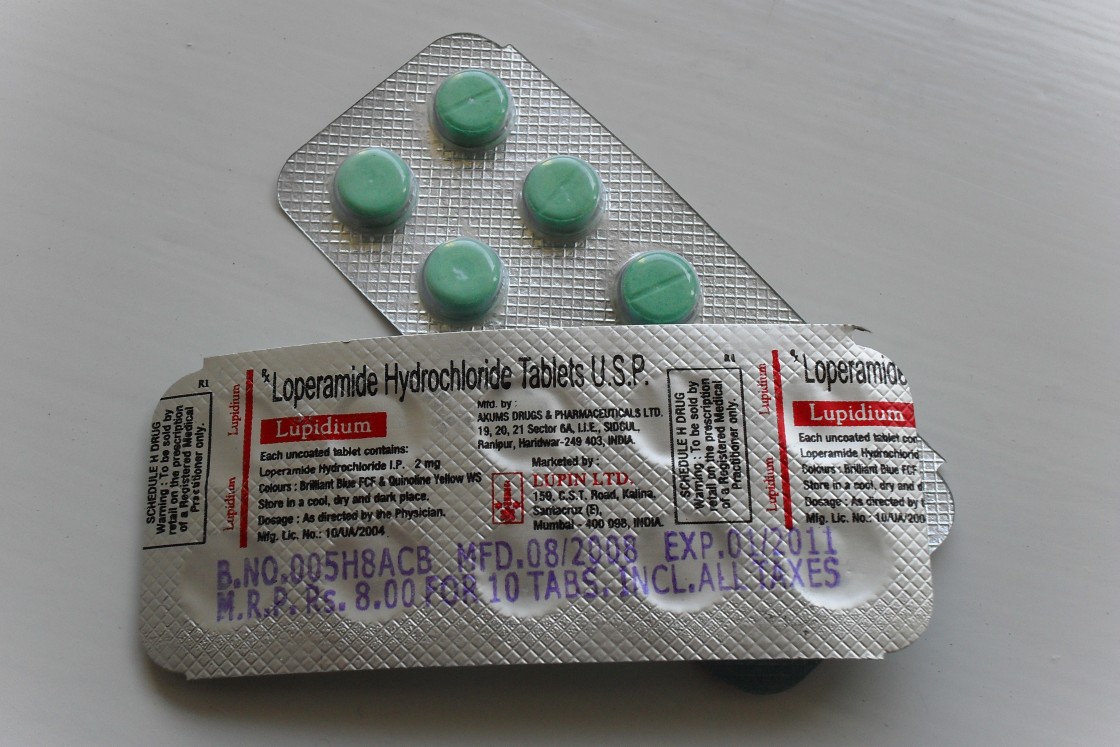Loperamide Image: © User: Kristoferb / Wikimedia Commons / CC-BY-SA-3.0

Dangers of Loperamide (Imodium A-D) Abuse
Recently news outlets have been reporting on the growing trend of loperamide abuse. Loperamide is the main ingredient in over the counter, anti-diarrhea medication such as Imodium A-D. Opioid users are turning to this cheap, accessible alternative as a substitute to opioids, or to self-medicate through the pain of withdrawal.
A normal dose of loperamide is 8-16 mg in a 24-hour period for acute digestive problems. For chronic issues, maximum dosage should not exceed 16 mg daily over a 10-day period. At these levels, users receive the therapeutic effects of the medication without the risk of addiction or other negative consequences.
Abusers of loperamide ingest over 200 mg daily for two or more weeks. At this level, loperamide produces the same euphoric, relaxing effects as opioids, along with several health risks. Side effects of short-term abuse include bloating, constipation, loss of appetite, severe stomach pain, nausea and vomiting.
With higher doses or long-term abuse the consequences become even more dangerous. Overdoses have been linked to life-threatening heart irregularities, bowel obstructions and urine retention. There is also evidence linking loperamide abuse to central nervous system and respiratory depression.
Loperamide does not typically show up on normal drug tests, nor do most physicians know to look for it. Because of this, many toxicologists and emergency room doctors believe the loperamide problem is more severe and widespread than reported.
For more detailed case studies and information, visit Loperamide Abuse Associated With Cardiac Dysrhythmia and Death
